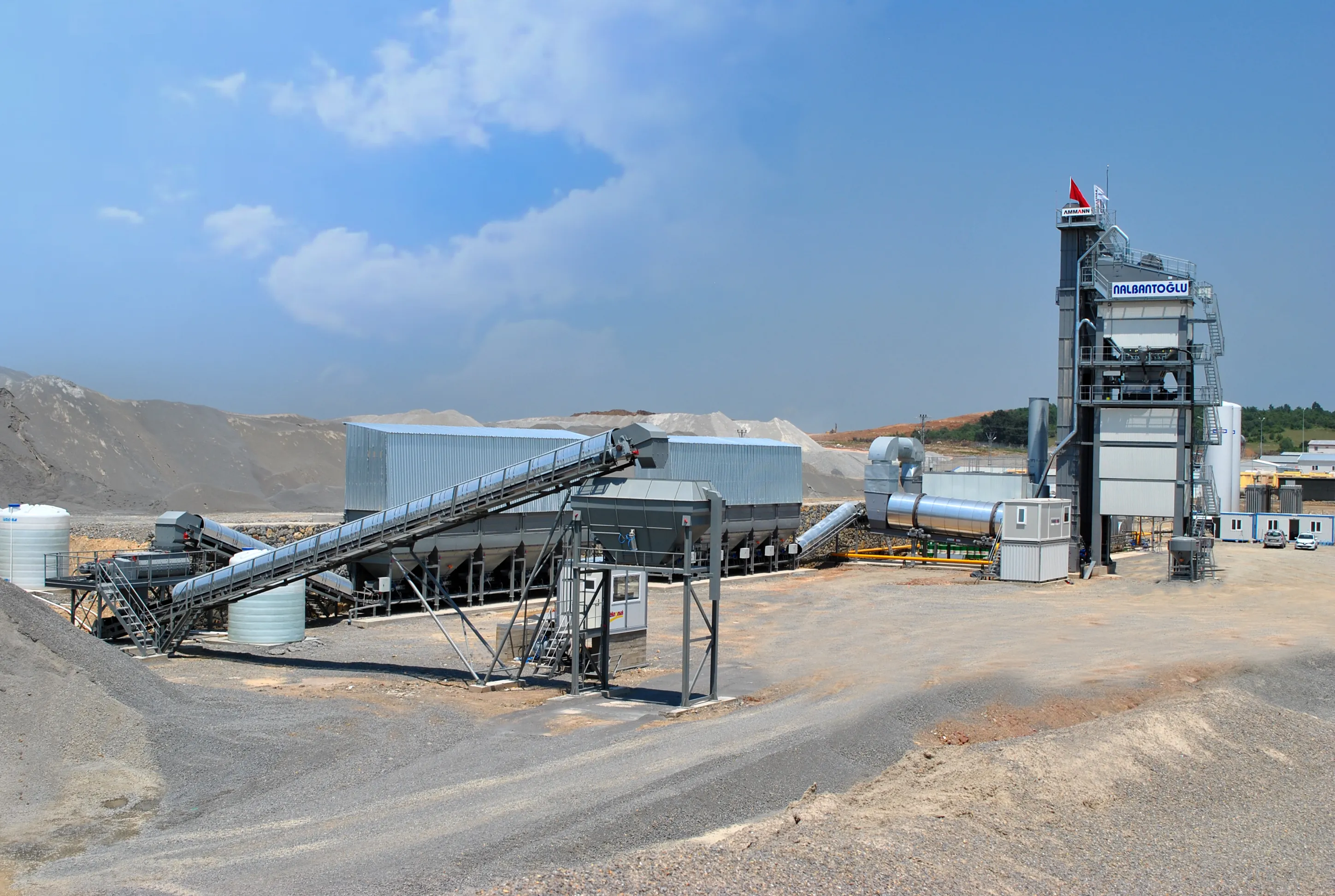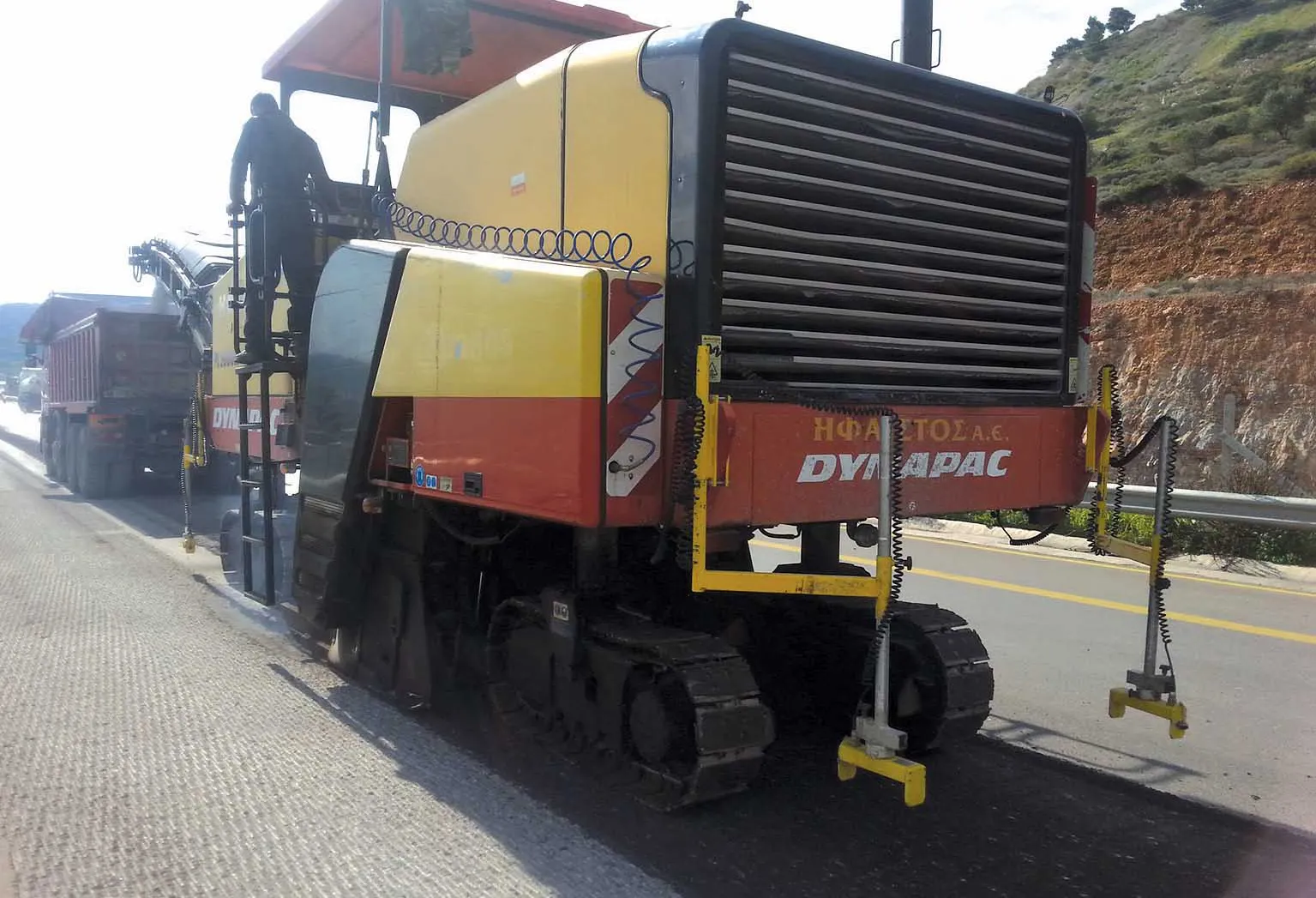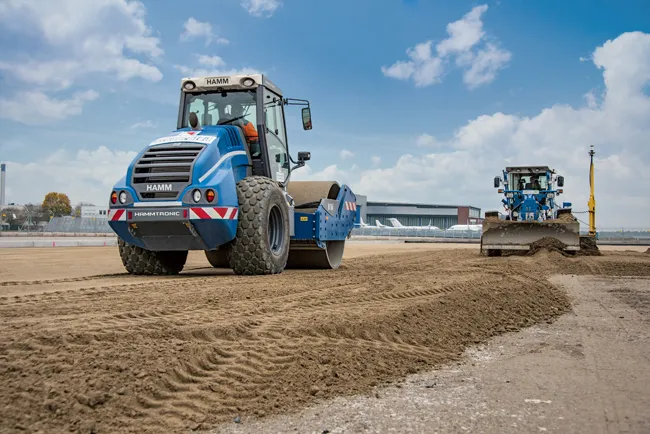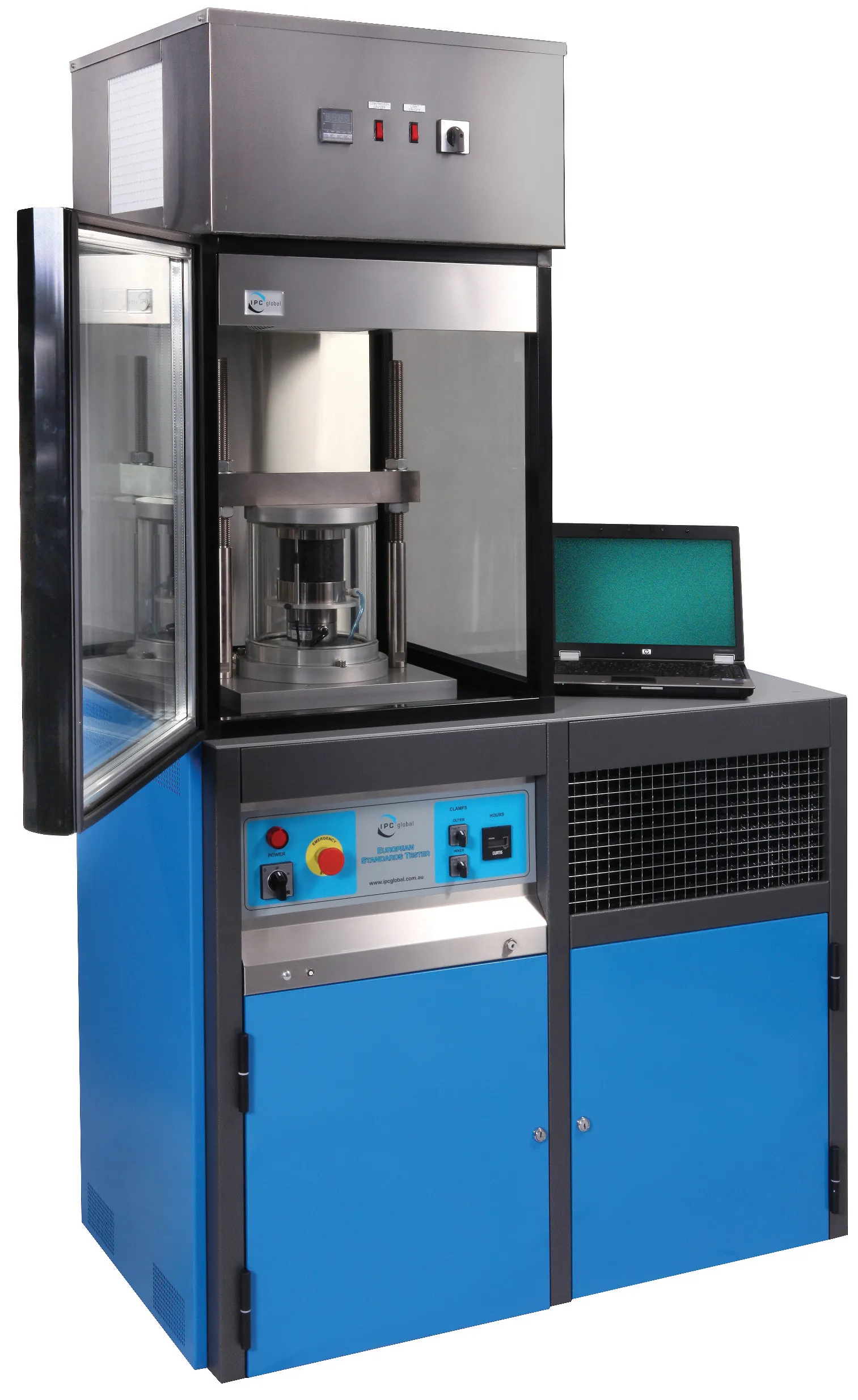The construction project for an industrial park, which includes building the roads linking to the facility, will benefit from the use of a stabiliser from BoMAG.
March 2, 2012
Read time: 2 mins
The construction project for an industrial park, which includes building the roads linking to the facility, will benefit from the use of a stabiliser from 172 Bomag.
The site is located at Striegistal near Chemnitz in Germany and a new central warehouse facility for Edeka will generate 675 jobs. The ground conditions however required remediation, and the job to provide sound and stable sub-soil was contracted to3395 MEIER Bodenstabilisierung, based in oelsnitz. The firm has been using BoMAG stabilisers including the new heavy MPh125 unit. MEIER has been using BoMAG machines since 1995 and has wide experience in soil improvement, soil stabilisation, milling, and recycling. This practical experience helped with the development of the BoMAG MPh125 soil stabiliser. The 26tonne machine is driven by a 440kW Deutz diesel, while it features a rotor width of 2.33m.
The unit is also equipped with a water system to provide the correct soil moisture content.
Besides the MPh 125, MEIER has also been using several smaller MPh122-2 stabilisers.
In Striegistal, a total volume of 320,000m³ soil requires improvement, in this case, through the addition of lime. After improvement, the soil features greater load bearing capacity so that new structures with higher loadings can be constructed.
Initially, the planned daily output was 7,500m³ but productivity has been increased and 10,000- 12,000m³ is now being treated/ day. The BoMAG MPh125 mixes in white lime, using an average dosage of 10kg/m² from a spreader. The lime is mixed with natural soil which contains clay with a relatively high moisture content and is checked daily by the Baugrund Sachsen soil laboratory to determine the optimum water content on which to calculate the lime content needed to produce the highest load bearing capability.
The site is located at Striegistal near Chemnitz in Germany and a new central warehouse facility for Edeka will generate 675 jobs. The ground conditions however required remediation, and the job to provide sound and stable sub-soil was contracted to
The unit is also equipped with a water system to provide the correct soil moisture content.
Besides the MPh 125, MEIER has also been using several smaller MPh122-2 stabilisers.
In Striegistal, a total volume of 320,000m³ soil requires improvement, in this case, through the addition of lime. After improvement, the soil features greater load bearing capacity so that new structures with higher loadings can be constructed.
Initially, the planned daily output was 7,500m³ but productivity has been increased and 10,000- 12,000m³ is now being treated/ day. The BoMAG MPh125 mixes in white lime, using an average dosage of 10kg/m² from a spreader. The lime is mixed with natural soil which contains clay with a relatively high moisture content and is checked daily by the Baugrund Sachsen soil laboratory to determine the optimum water content on which to calculate the lime content needed to produce the highest load bearing capability.









